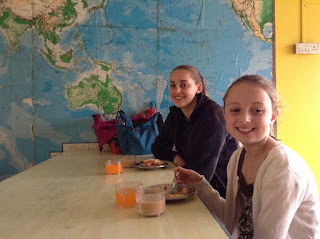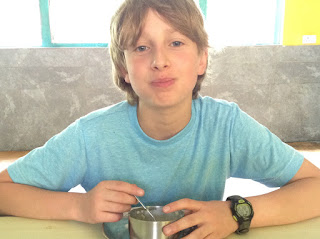Today we went on a city walk with the Salaam Balaak Trust, an NGO established to provide education, training and a safe haven for street children in Delhi. Most are rescued from the Delhi train station, a chaotic amalgam of humanity. Most children become addicted to glue sniffing, alcohol or other drugs to dull the harsh life on the street and beatings of police. While some can earn upwards of 10,000 rupees a day, it must all be spent quickly or it will be stolenfrom them. Money is oftenspent ondrugs and Bollywood movies, as food is provided free br Sikh temples. Over 70% of the children rescued in a given year are reunited with their families who they have run away from without knowing the dangers of street life. Michelle Obama recognized Salaam Balak last year for their outstanding work. It relies entirely on volunteers to provide the education and training to thechildren.
Our gudes, Ajay and Jumaid, were both former street children who have learned English and are preparing for careers. One guide was just awarded a scholarship for college in the US, a huge accomplishment.
Here are some photos from our visit....
Our gudes, Ajay and Jumaid, were both former street children who have learned English and are preparing for careers. One guide was just awarded a scholarship for college in the US, a huge accomplishment.
Here are some photos from our visit....
















































